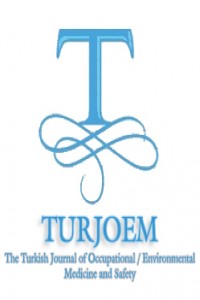Öz
Lung cancer is
the most common occupational cancer and it has been estimated that around 15%
of lung cancer among men and 5% in women are due to occupational exposures.
In the SYNERGY
project, we have pooled data from fourteen case-control studies conducted
between 1985 and 2010 in Europe and Canada, including 16,901 lung cancer cases
and 20,965 controls with detailed information on tobacco habits and lifetime
occupations. A quantitative job-exposure-matrix (SYN-JEM) was developed to
estimate job-, time period-, and region-specific exposure levels for asbestos,
respirable crystalline silica (RCS), chromium, nickel, and benzo (a) pyrene.
Exposure levels were calculated for each subject by linking SYN-JEM with
individual occupational histories.
The lung cancer
risks were estimated for the single carcinogens and in association with
smoking. The detailed smoking information allowed a precise adjustment for
smoking, and the large dataset enabled us to estimate the risks also in
relevant subgroups like never smokers. Overall, we observed a dose-dependent
increase of the lung cancer risk for all carcinogens that was more pronounced
for squamous cell carcinoma and small cell lung cancer than for adenocarcinoma
of the lung.
Exposure trends
in Europe have overall been decreasing in the past 50 years. This phenomenon is
the result of long-term investments in occupational health and safety, i.e.
training, surveillance, research, and improved technology. In light of the last
years economic crisis around the world it is important to ensure that these
positive trends continue and spread to all countries in order to improve
occupational health worldwide.
Anahtar Kelimeler
OCCUPATIONAL CARCINOGENS IN EUROPE: PAST AND PRESENT EXPOSURES IN RELATION TO LUNG CANCER RISK
Kaynakça
- Ann OLSSON Environment and Radiation Section, International Agency for Research on Cancer (IARC), France
Öz
Kaynakça
- Ann OLSSON Environment and Radiation Section, International Agency for Research on Cancer (IARC), France
Ayrıntılar
| Bölüm | Articles |
|---|---|
| Yazarlar | |
| Yayımlanma Tarihi | 16 Şubat 2017 |
| Yayımlandığı Sayı | Yıl 2017 Cilt: Volume 2 Sayı: İssue 1 (1) - 2.İnternational Congress Of Forensic Toxicology |


